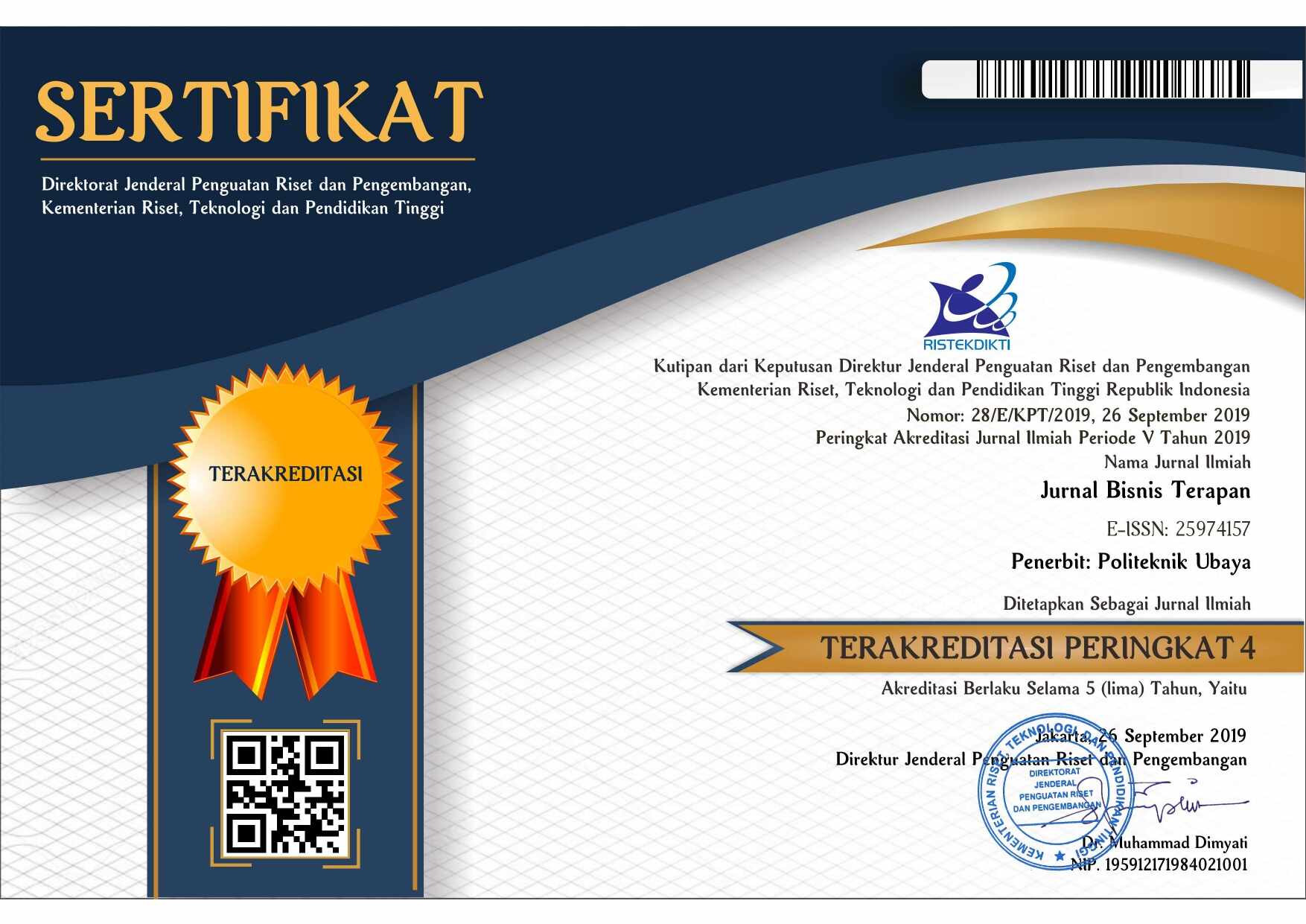IMPLEMENTASI STRATEGI BISNIS SM ENTERTAINMENT DI PASAR TIONGKOK MELALUI WAYV PADA TAHUN 2019-2021
 Abstract Views:
1745 times
Abstract Views:
1745 times
 PDF Downloads:
1893 times
PDF Downloads:
1893 times
Abstract
SM Entertainment is the largest multinational company in the entertainment industry in South Korea, which founded in 1995 by Lee Soo Man. SM Entertainment as the first entertainment company to export K-POP music abroad, one of which is the Chinese market. SM Entertainment started to enter the Chinese market in the early 2000s by holding concerts as one of the promotions of their music. SM Entertainment is still developing and distributing the Hallyu products despite the difficulties for foreign companies to enter the Chinese market. SM Entertainment maintains their business in China with a strategy that has been adapted to the market environment there. This paper discusses SM Entertainment's marketing mix strategy through the boy group named WayV in order to maintain its business in China after the conflict of Terminal High Altitude Area Defense (THAAD). Using a qualitative research approach, this study aims to analyze SM Entertainment's marketing mix strategy implemented through WayV in 2019-2021 through three stages; segmenting, positioning, and targeting. This study explores how SM Entertainment's marketing mix strategy as the MNC's can maintain their market in China through WayV.
Downloads
References
Amalia, Q. (2018). Diplomasi Hallyu Terhadap China Terkait Kemelut Terminal High Altitude Area Defense Di Korea Selatan Tahun 2016-2017. Jakarta : Universitas Islam Negeri.
Benjamin, J. (2019). ‘K-Pop Avengers’ SuperM Announce Arena Tour Before Even Releasing An Album. Retrieved May 13, 2022, from Forbes: https://www.forbes.com/sites/jeffbenjamin/2019/10/02/k-pop-avengers-superm-announce-us-arena-tour-before-even-releasing-an-album/?sh=659a4ab18b3a
Boman, B. (2019). Achievement in the South Korean music industry. International Journal of Music Business Research, 8(2), 6-28.
Cayla, J., & Arnould, E. J. (2008). A Cultural Approach to Branding in the Global Marketplace. Journal of International Marketing, 16, 86-112.
CNN Indonesia. (2019). China Khawatirkan Dampak 'Demam' K-Pop. Retrieved Februari 18, 2022, from https://www.cnnindonesia.com/hiburan/20190513113225-241-394346/china-khawatirkan-dampak-demam-k-pop
Daniel, C. O. (2018). Effect of Marketing Strategies on Organizational Performance. International Jurnal of Business Marketing and Management, 3(9), 1-9. Retrieved Februari 10, 2022
Gaon Chart. (2021). 2020년 12월 Album Chart. Retrieved Februari 8, 2022, from http://gaonchart.co.kr/main/section/chart/album.gaon?nationGbn=T&serviceGbn=&targetTime=12&hitYear=2020&termGbn=month
Kang, S. H., & Ye, W. (2017). The Evolved Survival Of SM Entertainment In The Chinese Market: Legitimation Strategies and Organizational Survival. Kritika Kultura by Ateneo de Manila University, 291.
Katsioloudes, M. I., & Hadjidakis, S. (2007). International business : a global perspective. Oxford: Elsevier.
Kim, Y. (2013). The Korean Wave: Korean Media Go Global. New York: Routledge.
Kotler, P., & Armstrong, G. (2008). Principles of Marketing: Global and South African Perspectives. Cape Town: Prentice Hell.
Kumparan. (2020). WayV Sukses Menggelar Konser Online WayV Beyond The Vision. Retrieved Februari 15, 2022, from https://kumparan.com/kumparank-pop/wayv-sukses-menggelar-konser-online-wayv-beyond-the-vision-1tLjOhdZ3d5/full
Kusuma, S. D. (2019). Strategi Bisnis Perusahaan Hiburan Sebagai Instrumen Diplomasi (Studi Pada Perusahaan SM Entertainment di Korea Selatan). Malang: Universitas Muhammadiyah Malang.
Kyuhyun, C. (2016). The Status And Future Development of K-POP. Seoul: Kyung Hee University.
Li, A. (2016). An Analysis of K-pop’s Success and its Marketing Strategy in China An S.M. Entertainment Case. Seoul: Korea University.
NCT Japan. (2022). NCT Japan Profile. Retrieved May 13, 2022, from https://nct-jp.net/en/profile/
Paramitha, M. C., Parameswari2, A. A., & Widya, A. B. (2021). Upaya Diplomasi Korea Selatan Memperbaiki Hubungan Ekonomi Dengan Tiongkok Pasca Permasalahan Terminal High Altitude Area Defense (THAAD). Jurnal Dikshi, 01(01).
Peralta, M. (2021). WINWIN STEALS THE SPOTLIGHT AT LOUIS VUITTON’S STORE OPENING. Retrieved Februari 15, 2022, from https://www.envimedia.co/winwin-steals-the-spotlight-at-louis-vuittons-store-opening/
Pratamasari, A. (2016). International Business Strategy in Selling Korean Pop Music:: A Case Study of SM Entertainment. Global & Strategis, 10(2), 221-234.
Putri, M., & Trisni, S. (2021). Corporate Diplomacy: Peran SM Entertainment melalui New Culture Technology dalam Diplomasi Publik Korea Selatan. Padjadjaran Journal of International Relations (PADJIR) , 73-88.
Rowley, G. (2019). Watch Blackpink’s History-Making Performances of ‘Ddu-Du Ddu-Du’ & ‘Kill This Love’ at Coachella 2019. Retrieved from Billboard: https://www.billboard.com/music/music-news/blackpink-coachella-2019-performance-video-9353827/
Sipayo, R. C. (2020). Strategi SM Entertainment Dalam Mengembangkan New Culture Technology Di Pasar China. Makassar: Universitas Bosowa.
Siyoto, S., & A, S. (2015). Dasar Metodologi Penelitian. Yogyakarta: Literasi Media Publishing.
SM Entertainment. (2022). Album. Retrieved Februari 14, 2022, from https://www.smentertainment.com/Entertainment/Albums
SM Entertainment. (2022). Company introduction. Retrieved Februari 12, 2022, from https://www.smentertainment.com/Overview/Introduction
SM Global Travel. (2019). WayV FANMEETING TOUR 'Section#1_We Are Your Vision'. Retrieved Februari 14, 2022, from https://global.smtowntravel.com/
Suryani, A. N. (2019). Bangtan Sonyeondan (BTS) As New American Idol. Rubikon, 6(1), 48-54.
Teixeira, L. (2019). K-Pop’s Big China Problem. Retrieved Februari 18, 2022, from https://foreignpolicy.com/2019/07/30/k-pops-big-china-problem/
The Jakarta Post. (2019). K-pop shows may return to China in sign of easing Korea tensions. Retrieved from https://www.thejakartapost.com/life/2019/02/20/k-pop-shows-may-return-to-china-in-sign-of-easing-korea-tensions.html
The Korea Times. (2016). S.M. Entertainment partners with Alibaba Group. Retrieved from http://www.koreatimes.co.kr/www/tech/2020/08/693_197678.html


This work is licensed under a Creative Commons Attribution-NonCommercial-ShareAlike 4.0 International License.

Ciptaan disebarluaskan di bawah Lisensi Creative Commons Atribusi-NonKomersial-BerbagiSerupa 4.0 Internasional.
-
Articles published in Jurnal Bisnis Terapan are licensed under a Creative Commons Attribution-NonCommercial-ShareAlike 4.0 International (CC BY-NC-SA 4.0) license, which permits anyone to copy, transform, or redistribute articles for any lawful purpose in any medium, provided appropriate credit is given to the original author(s) and Jurnal Bisnis Terapan is recognized as its original publisher. A link to this license should also be provided. Any derivative work of an article published in Jurnal Bisnis Terapan must also be shared under the same (or compatible) license.
-
Both copyright and publishing rights on articles are retained by the respective author(s), without restrictions. Only a non-exclusive license is granted to Jurnal Bisnis Terapan to publish the article and identify itself as its original publisher.

 DOI:
DOI:






